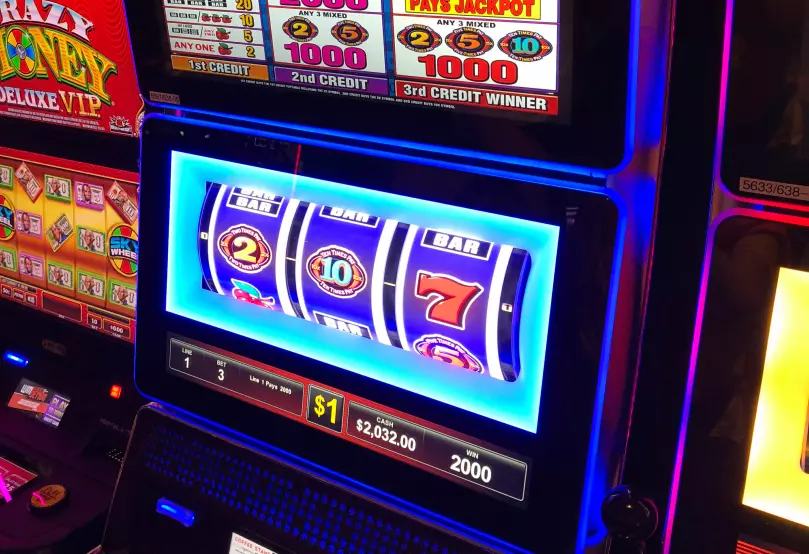How To Cheat Roulette
Roulette, often termed the most enigmatic game within the sprawling casino landscape, has been the subject of countless strategies and ploys aimed at conquering its perplexing mechanics. Dating back to its inception, players have endeavoured to devise intricate tactics, some even veering into the realm of illicit activities, in an attempt to hoodwink the seemingly impregnable game.
In essence, the casino’s advantage or ‘house edge’ varies across different types of roulette. For instance, in the American version, which includes both a single zero and a double zero, the house edge sits at approximately 5.26%. In comparison, the European variant, which only features a single zero, offers a lower house edge of about 2.7%.
Despite the allure of outsmarting the system, the most effective approach towards playing roulette is arguably one of prudence and astute management of one’s bankroll. Making well-informed bets, understanding the game’s odds, and knowing when to stop are fundamental to a responsible and potentially rewarding game.
However, the focus of this segment is not on the ethical methods, but rather the controversial and convoluted tactics that some audacious players employ to cheat the roulette system. While these techniques are by no means promoted or endorsed, an examination of them provides an intriguing insight into the lengths individuals will go to secure a win. Join us as we delve into the labyrinth of roulette cheating, examining the myriad methods and strategies that have been utilised in the pursuit of that elusive edge.

What Are Some Ways To Roulette Cheating
There are essentially two primary ways through which individuals attempt to cheat at roulette, namely: mechanical and digital cheating. Mechanical cheating involves physical manipulation of the roulette wheel or the use of physical forces to influence the outcome of a spin. This could be anything from the application of magnets to illicit tampering with the wheel to create a bias towards certain numbers.
On the other hand, digital cheating employs the use of advanced software and algorithms to predict where the ball will land on the wheel. This method is based on the concept of ‘decoding’ the roulette wheel’s randomness and relies heavily on technology and mathematical calculations to predict outcomes.
It’s imperative to note that both these methods are not only ethically dubious but are also illegal and come with severe penalties. Our intent is not to endorse such behaviour but to shed light on the extents to which individuals might resort, in their pursuit of beating the house. In the following sections, we will delve deeper into these two methods, exploring how they work, their effectiveness, and the potential repercussions of employing such tactics.
How Do You Work a Mechanical Roulette Scam
Mechanical roulette fraud involves the physical manipulation of the roulette wheel or influencing the outcome of a spin through the application of physical forces. This form of cheating attempts to subvert the inherent randomness of the game, casting doubt on the integrity of the outcomes. Let’s delve further into specific types of mechanical roulette fraud.
Magnets
A common method of mechanical roulette fraud involves the use of magnets. Cheaters can manipulate the ball’s direction and final resting place on the wheel through the strategic use of magnetic fields. Typically, this would involve placing a magnet in the roulette ball itself or within the roulette wheel. The cheater then uses a control device to activate the magnet at the opportune moment, effectively controlling the outcome of the spin. However, it’s worth noting that this form of roulette cheating requires a high degree of skill and subtlety to avoid detection, and modern casino security measures make it exceedingly difficult to execute successfully.
Filling or ‘Jamming’ Pockets
Another type of mechanical fraud involves ‘filling’ or ‘jamming’ pockets on the roulette wheel. This process involves altering the physical properties of certain pockets so that the ball bounces off some harder than others. If a cheater is constructing a wheel from scratch, they may use softer materials like woods or metals in some pockets, while using harder materials in others. By doing so, they aim to influence the ball’s trajectory, causing it to land more frequently in certain pockets. It’s crucial to note, however, that this method requires deep knowledge of the wheel’s construction and careful planning to avoid arousing suspicion. Moreover, in a highly regulated casino environment, the chances of successfully implementing this strategy are minimal.
How Digital Cheating Roulette Works
Digital roulette fraud encompasses the use of advanced technology and mathematical algorithms to predict the outcome of a spin. This form of cheating attempts to “decode” the randomness of the roulette wheel and tilt the odds in the cheater’s favour. However, like mechanical cheating, digital cheating is illegal, and modern casinos employ sophisticated anti-fraud systems to detect and prevent it. Let’s explore some of the methods used in digital roulette fraud.
Use of Predictive Software
One of the most prevalent methods of digital roulette fraud is the use of predictive software. This software calculates the speed of the wheel and the ball, and predicts where the ball is most likely to land based on these calculations. The cheater needs to input the data manually or with the aid of a concealed device, which then calculates the likely outcome. However, the accuracy of such software is inconsistent, and casinos have developed measures to counteract these tactics.
Remote Control Apps
Another form of digital roulette fraud involves the use of remote control apps. These apps can manipulate the roulette wheel’s electronic components, affecting the outcome of a spin. While this method may sound innovative, it requires access to the roulette machine’s internal systems, which is practically impossible in regulated casinos.
Hacking the Casino’s System
The most audacious method of digital roulette fraud involves hacking directly into the casino’s systems to manipulate the outcome of spins. This method is not only highly complex but also carries severe legal penalties. Beyond that, it’s next to impossible due to the robust cybersecurity measures employed by modern casinos.
Collaborative Play and Data Analysis
In collaborative play, a group of players collects data on the outcomes of numerous roulette spins and analyses the data to identify any trends or biases. By pooling this information and using statistical analysis, the group attempts to predict future outcomes. However, this method’s effectiveness is questionable, as the results of roulette spins are independent events and do not influence future outcomes.
In conclusion, while digital roulette fraud may seem appealing to some, the risks heavily outweigh the potential gains. Furthermore, casinos have robust anti-cheating measures in place, making the chances of successful digital cheating extremely low.
Pierre Dugal Is A Famous Roulette Cheater
Pierre Dugal was a notorious French carpenter and roulette cheat who operated during the 19th century. His unique skills in crafting and carpentry played an integral role in his deceitful exploits. Dugal was known for his ability to manipulate roulette wheels, a skill that he used to great effect in several casinos across France.
The crux of Dugal’s scam lay in his understanding of roulette wheel construction. As a trained carpenter, he had the knowledge and skill to make slight adjustments to the wheels in favour of certain outcomes. His method was to break into casinos after hours and modify their roulette wheels using his carpentry skills. He would subtly change the structure of certain pockets, making the ball more likely to land in them. His adjustments were so minor they evaded the detection of casino staff.
Dugal’s career as a roulette cheat spanned over decades during the 19th century. However, his illicit activities eventually caught up with him. Despite the substantial wealth he amassed from his cheating techniques, Dugal was known to squander his ill-gotten gains on gambling, women, and luxurious living. This reckless lifestyle led to several arrests, and he ended up spending time in prison on more than one occasion.
The story of Pierre Dugal serves as a stark reminder of the dubious lengths some individuals are willing to go in their attempt to ‘beat the house’. Despite temporary gains, Dugal’s actions led to a life of instability and eventual downfall, underlining the fact that any form of cheating, whether mechanical or digital, is not only illegal but also ultimately leads to severe consequences.
The Story of Monique Laurent
Monique Laurent is another infamous figure in the world of casino cheats, known for her unique and technologically advanced methods. Operating in the late 1970s, Laurent, along with her brother and husband, exploited the vulnerabilities of older roulette wheels to amass considerable wealth.
The essence of Laurent’s scam lay in her ability to manipulate the roulette ball itself. Her brother, an electronics genius, created a radio transmitter which was effectively disguised as a packet of cigarettes. Furthermore, he ingeniously managed to insert a small receiver into a roulette ball. With these devices, the team essentially had remote control over the ball, allowing them to determine which section of the wheel it would land in.
In action, Monique would watch the roulette dealer closely and push a hidden button on the cigarette pack every time the ball was released. The transmitter would send a signal to the receiver in the ball, triggering it to dive into a pre-determined section of the wheel. Meanwhile, her husband would place bets on the predicted sections, winning significant amounts of money.
Their scheme was remarkably successful for a time, as it was practically undetectable to both casino staff and other players. However, the trio’s luck ran out when the casino security staff noticed their consistent and improbable winning streak. An investigation was launched, leading to the discovery of the concealed radio devices and the arrest of Laurent and her associates. The story of Monique Laurent is yet another example of the extraordinary lengths some individuals will go to outwit the system, and the inevitable consequences they face when their schemes are exposed.
The Story of Richard Marcus
Richard Marcus is a renowned name in the world of casino deceit, having successfully executed one of the most ingenious roulette scams in history during the late 20th century. He had the unique advantage of having both the experience of a professional gambler and the cunning of a seasoned cheat, making him an elusive figure for casino security.
Marcus’ signature scam, known as the ‘Savannah’, was a masterpiece of trickery and high-stakes bluffing. The method involved placing a $5 chip on top of a stack of $500 chips, creating a seemingly innocuous bet. If the bet won, Marcus would immediately draw the dealer’s attention to the size of the bet – a whopping $1,005. If the bet lost, however, he’d quickly switch the high-value chips with a pair of $5 chips when the dealer wasn’t looking – a technique known as ‘past posting’.
Despite the simplicity of his method, Marcus’ execution was flawless, and he managed to deceive casinos for over two decades, amassing millions before his eventual retirement in the late 1990s. The story of Richard Marcus showcases the audacity of those that seek to undermine the system, and also underscores the constant battle between casinos and those who try to cheat them.
As history would have it, there’s no shortage of inventive and daring schemes when it comes to roulette scams. From high-tech devices to crafty sleight-of-hand, cheats have employed a wide range of strategies in hopes of ‘breaking the bank’. However, these stories invariably end the same way: with the perpetrators being caught and facing serious legal consequences. While the allure of easy money may be strong, the risks and repercussions of such actions far outweigh any temporary gains. After all, in the world of gambling, the house always wins.
The Scandal of Dealer Collusion
Dealer collusion stands as another notorious method used by casino cheaters, involving a cooperative scheme between a player and the dealer. This fraudulent strategy has occurred across countless casinos, with instances documented as early as the mid-1900s.
The mechanics of the scheme are relatively straightforward, but they require a significant level of trust between the involved parties. In essence, the player and dealer conspire to alter the outcome of the game in favour of the player. This could involve anything from the dealer subtly revealing their hand in a game of poker, to manipulating the roulette wheel or blackjack deck in the player’s favour.
One of the most notable cases of dealer collusion took place in the late 1970s in the United States. A group of gamblers, led by a man named Joe Classon, made a fortune of over a million dollars by colluding with various roulette and blackjack dealers. The method was simple yet effective: the dealer would secretly signal the player to place a bet when favourable conditions were met, such as when the roulette ball landed in a certain section of the wheel or when the blackjack deck was particularly rich in high-value cards.
However, as with all attempts to cheat the system, the perpetrators inevitably faced dire consequences. The scheme was eventually uncovered by vigilant casino security staff, leading to the arrest and imprisonment of the entire group, including the complicit dealers. This tale of dealer collusion serves as yet another cautionary tale in the world of casino fraud, reiterating that the short-term gains of cheating are far outweighed by the severe consequences that are sure to follow.
The Risks and Repercussions of Roulette Cheating
Roulette cheating may seem like an appealing shortcut to easy wealth, but it’s a dangerous game fraught with significant risks. Modern casinos employ sophisticated security systems designed to deter and detect any fraudulent activities. High-resolution surveillance cameras, sensitive microphones, and advanced facial recognition software are just some of the tools leveraged by casinos worldwide to maintain the integrity of their games.
Moreover, behind these technological safeguards is a team of dedicated security professionals, including former law enforcement officers and even ex-cheaters, who bring their unique insights to the table. They are skilled in identifying subtle behavioural cues, unusual betting patterns, and other anomalies that may indicate a potential cheat.
The consequences of being caught are severe. Depending on the jurisdiction, cheaters can face hefty fines, lengthy prison sentences, or both. Additionally, they are invariably blacklisted from casinos, not only in their home country but often globally. This effectively ends their gambling career and tarnishes their reputation irreparably.
In essence, the perceived benefits of roulette cheating are vastly outweighed by the risks. The casino’s intricate security measures and severe punitive consequences make it an endeavour destined for failure. It’s important to remember that the thrill of the gamble lies in fair play, and while the allure of ill-gotten gains may be tempting, the real rewards come from playing the game as it’s meant to be played.



